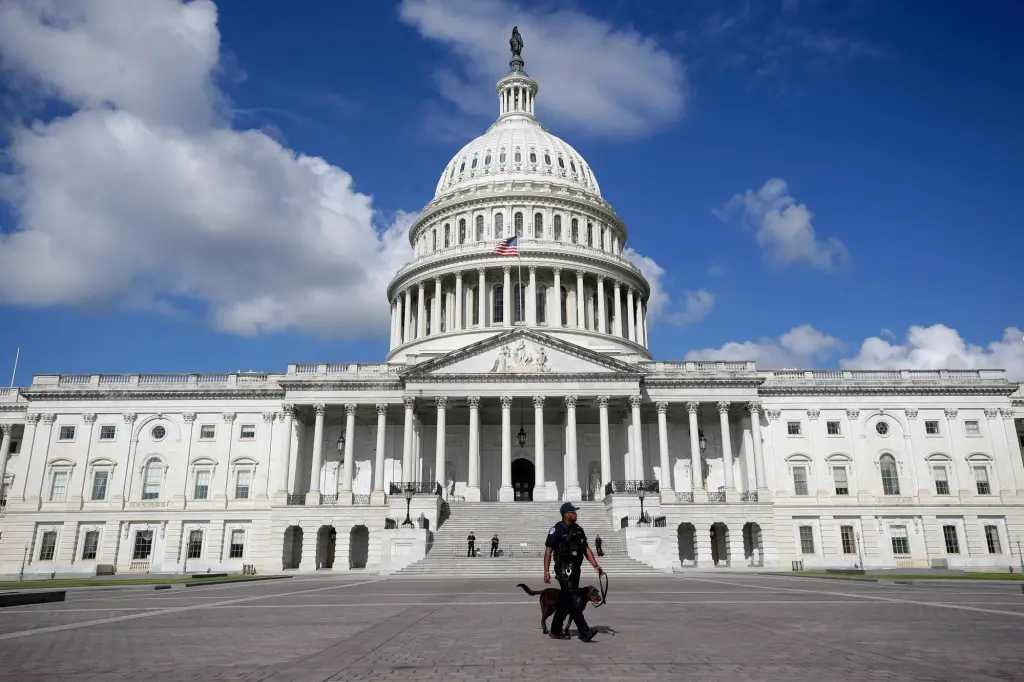
In less than a week, the federal government will once again exhaust funding authorized by Congress, which would force the closure of nonessential services and could result in the temporary furlough of hundreds of thousands of workers.
Despite the urgency of the moment and disruptions that would occur as a result, federal leaders are slouching toward a shutdown. President Donald Trump announced Monday he had canceled a meeting with Democratic leaders in Congress over how to break the impasse, leaving talks at a standstill.
Weaponizing federal funding used to be a rare and extreme act, but no more. That cavalier approach ignores the widespread harm to average Americans, including to a good number of people in Hampton Roads, and reflects a failure of those we send to Washington to fulfill even their most basic responsibilities in office.
The nation is only six months on from the last showdown over federal spending, which resulted in a deal to provide funding through the end of the fiscal year on Sept. 30. Recall that those negotiations unfolded during the Trump administration’s blitz of sweeping changes that included the massive downsizing of several agencies and the termination of tens of thousands of workers.
Then and now, Democrats who lack a majority in either chamber had only one point of leverage: that Republicans needed a handful of Democratic defections in the Senate to reach the 60-vote threshold required to pass a continuing resolution. Ultimately Senate Minority Leader Chuck Schumer, D-N.Y., reasoned that a shutdown would give Trump more latitude to continue his federal downsizing and helped provide the margins needed to keep Washington operating.
But that short-term measure simply kicked the can down the road to September, when the same issues remain. House Republicans passed a bill to fund the government through Nov. 21 — ensuring yet another fight in the coming months — but it failed in the Senate on Friday.
Senate Democrats have offered a proposal of their own. In addition to keeping the government open, it would extend enhanced tax credits under the Affordable Care Act set to expire at the end of the year. Research by KFF, a nonpartisan health care policy nonprofit, shows that premiums will spike for millions of Americans if Congress fails to act.
However, Democrats have another problem in their negotiations with the White House, that being an administration which cannot be trusted to honor any agreement reached by Congress.
The Government Accounting Office has identified six times this year that Trump has violated the Impoundment Control Act, which requires the executive branch to spend money appropriated by the legislature. (Trump maintains that the law is unconstitutional but it has yet to be decided by the courts.) The White House has withheld funds for Head Start, the National Institutes for Health, the Federal Emergency Management Agency and K-12 education.
The GAO has also objected to the White House’s use of “pocket rescissions,” another way the administration hopes to avoid spending federal funds as required by law. While Republicans voted, over Democratic opposition, to approve Trump’s rescission request in July that rolled back $9 billion in appropriations for public broadcasting and foreign aid, the president canceled an additional $4.5 billion in foreign aid without lawmakers’ consent, which the GAO says is another violation of the Impoundment Control Act.
While Trump’s approach to governance is without precedent, Congress could still do its job as mandated by the Constitution. It could take firm control of spending decisions, negotiate in good faith to reach a budget agreement rather than another stopgap measure, and assert its power rather than continuously ceding authority to the executive.
As this plays out, though, Americans are the bargaining chips — our service members, government employees, those who rely on federal services and millions of others who expect our elected officials to work toward the common good rather than the most advantageous political position.
As we slouch toward a shutdown, lawmakers must remember who they serve and act with deliberate urgency to resolve this impasse quickly.



